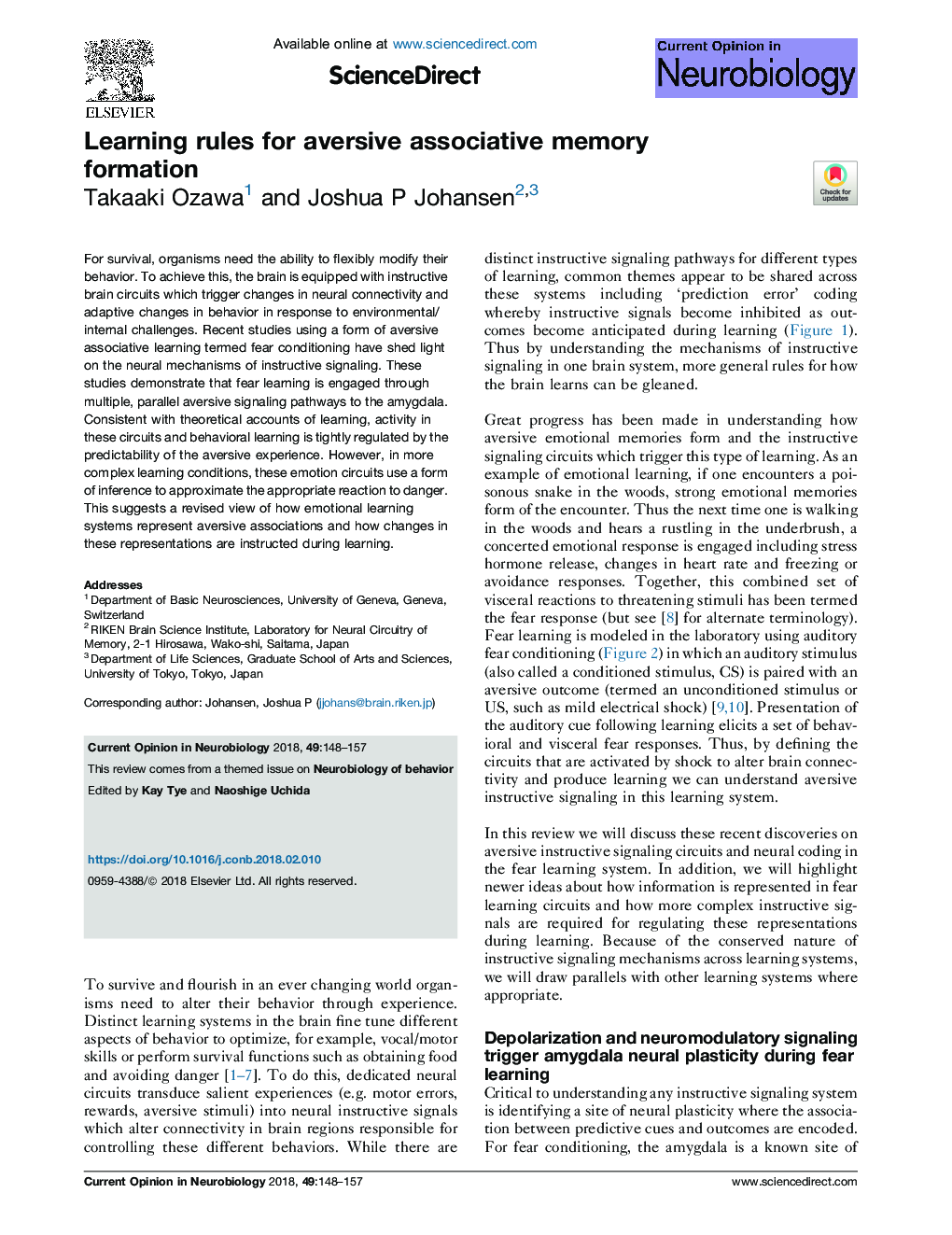| Article ID | Journal | Published Year | Pages | File Type |
|---|---|---|---|---|
| 8840137 | Current Opinion in Neurobiology | 2018 | 10 Pages |
Abstract
For survival, organisms need the ability to flexibly modify their behavior. To achieve this, the brain is equipped with instructive brain circuits which trigger changes in neural connectivity and adaptive changes in behavior in response to environmental/internal challenges. Recent studies using a form of aversive associative learning termed fear conditioning have shed light on the neural mechanisms of instructive signaling. These studies demonstrate that fear learning is engaged through multiple, parallel aversive signaling pathways to the amygdala. Consistent with theoretical accounts of learning, activity in these circuits and behavioral learning is tightly regulated by the predictability of the aversive experience. However, in more complex learning conditions, these emotion circuits use a form of inference to approximate the appropriate reaction to danger. This suggests a revised view of how emotional learning systems represent aversive associations and how changes in these representations are instructed during learning.
Related Topics
Life Sciences
Neuroscience
Neuroscience (General)
Authors
Takaaki Ozawa, Joshua P Johansen,
